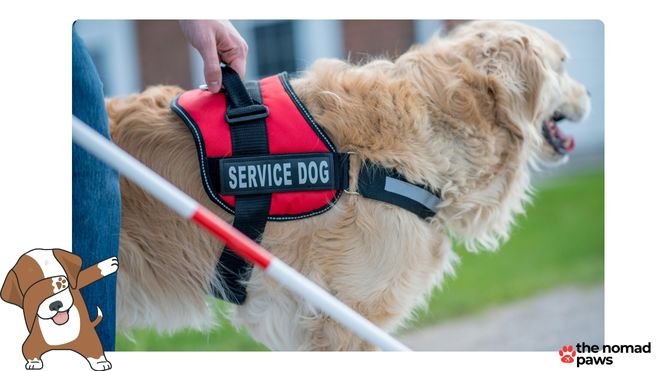A new research aims to understand how specially trained dogs can help improve the mental health and daily lives of veterans.
By exploring the partnership between veterans and psychiatric service dogs, the study published in JAMA Network Open provides insights that could influence future treatments and support options for those affected by PTSD.
Understanding PTSD and the Potential of Service Dogs
PTSD involves intense memories, increased alertness, negative thoughts, mood swings, and avoiding reminders of trauma. It often coexists with anxiety and major depression.
Although some treatments work, not everyone sticks with them. Early studies suggest that service dogs can help veterans with PTSD symptoms.
Yet, only one clinical trial compared service dogs to emotional support dogs, making it hard to draw firm conclusions.
Also, most studies didn’t use blind ratings by clinicians to measure how severe the PTSD was.
In-Depth Look at the Veteran and Service Dog Study

A study involving 200 veterans found significant differences between those with service dogs and those on the waiting list.
Of the 170 included in the study, 81 had a service dog, and 75 were on the waitlist.
The average age of participants was 37.6 years old, with the majority being male (75%) and White (76%).
Veterans with service dogs showed fewer severe PTSD symptoms after three months compared to those without dogs.
Notably, the odds of meeting the criteria for PTSD diagnosis were lower in the intervention group. Specifically, 75% of those with service dogs were diagnosed with PTSD at follow-up, compared to 85% of the control group.
Regarding mental health, the intervention group scored lower for depression and anxiety.
They experienced fewer symptoms of mild depression and generalized anxiety disorder.
There was also improved social health, evidenced by better companionship and less social isolation, even though social activity levels did not differ between groups.
Quality of life was notably better among the service dog group.
They reported less anger, higher satisfaction with life, greater resilience, and improved mental health and well-being. There were observations of suicidality from the beginning of the study through follow-up.
The PTSD Checklist for DSM-5 (PCL-5) and Clinician-Administered PTSD Scale for DSM-5 (CAPS-5) indicated lower PTSD symptoms across all areas for those partnered with service dogs. Eleven adverse events were reported.
In summary, the partnership with a service dog led to improved mental health outcomes, reduced PTSD symptom severity, better social connections, and an overall higher quality of life for veterans.
Positive Impacts and Considerations for Service Dogs in Veteran Care
Service dogs are making a big impact for U.S. veterans.
They help lower PTSD symptoms and reduce feelings of depression and anxiety. Veterans with these dogs also enjoy a better quality of life.
Despite the positive results, there are some issues. The study didn’t randomly choose who got dogs, so the findings might not apply to everyone.
Plus, only one organization trained the dogs, meaning other groups might get different results.
The U.S. Department of Veterans Affairs and nonprofits like K9s for Warriors are interested in these studies.
Researchers at Purdue University, the University of Arizona, and places like the Human-Animal Bond Lab are leading this work. The support from organizations like the National Institutes of Health helps too.






